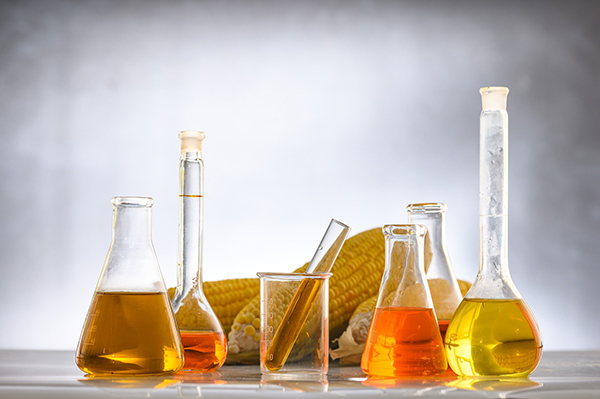
What is the European market for biomass chemicals?
22.07.2020In order to reduce its dependence on fossil fuels, the European chemical industry is turning to biobased alternatives. A new study by the Joint Research Center (JRC) details the potential of these biobased chemicals in Europe.
It also provides data to enable policy makers to learn more about the untapped potential of this market. Finally, it provides information on the opportunities and constraints that may impact the interest of stakeholders and customers in this type of products.
Biomass as a raw material for the chemistry of the future?
The update of the European Bio-Economy Strategy aims to accelerate the development of a sustainable bio-economy in Europe.
The chemical sector plays an important role in this transition, in particular through the production and marketing of biobased chemicals. These bring new functionalities and make the European economy more sustainable and less dependent on fossil resources.
Overview of the European market for biobased chemicals
The bio-economy is widely promoted by the European Commission. However, there are few statistics on biobased products. Hence the interest of the study carried out by the JRC. Indeed, this analysis is essential to identify market gaps and development opportunities. It addresses in particular :
- production volumes,
- the biobased portion,
- prices and turnover,
- consumption and trade of 50 biobased products representative of 10 product categories.
The product categories are :
- Platform chemical molecules,
- Solvents,
- Polymers for plastics,
- Paints, coatings, inks and dyestuffs,
- Surfactants,
- Cosmetics and personal care products,
- Adhesives,
- Lubricants,
- Plasticisers and stabilisers for rubbers and plastics,
- Synthetic fibres.
According to this study, which is based on these 10 categories, the EU produces 4.7 Mt/year of biobased chemicals, which represents 3% of the global market for all these categories. The study also shows that each product category evolves differently in terms of market maturity and market potential.
Some revealing figures
- The market for platform chemical molecules is large, with global production of 403 Mt/year in Europe. However, the share of biobased products is still low and represents only 0.3%. Significant investments will therefore have to be made.
- Only 3% of the biosolvents produced in the world are produced in Europe. The EU imports 43% of its consumption of bio-solvents. Thanks to the wide use of vegetable oils in surfactants, the share of biobased products in this sector reaches 50%. It is a stable and mature sector.
- Cosmetics and personal care products have the advantage of being directly influenced by consumers who are willing to pay more for natural products. It is estimated that 44% of the raw materials used in this sector are biobased.
- In a business-as-usual scenario, the annual growth rate of these products is estimated at 3.6% per year between 2018 and 2025, which is a limited growth.
- Biobased plastics are expected to grow at 4% per year for the next 5 years. Depending on the type of polymer, the EU is either an importer or an exporter.
- For example, biobased polyethylene is produced exclusively in Brazil from cane sugar. On the other hand, in Europe, the starch industry (250 Kt/year) is well developed and several sites produce PLA (7 Kt/year).
What are the obstacles to the deployment of biobased chemicals?
Scientists identify production costs as the main obstacle to the growth of the market for biobased chemicals, as they are even more expensive than their petro-sourced counterparts.
In addition, some biobased products are still considered risky in terms of infrastructure investment and future sales.
The experts point out that, in order to stimulate this market, various policy interventions could take place:
- either an intervention in terms of investment incentives through grants, loans, guarantees, etc.,
- or intervention to make the production of fossil-based chemicals more expensive. For example, through a carbon tax.
- or an intervention aimed at making the use of biobased products mandatory in certain industries, thereby strengthening their demand.
Sources :
- Quel est le marché européen des produits chimiques issus de la biomasse ? - ValBiom, 26.03.2019
- The future of bio-based chemicals in the EU Bioeconomy – European Commission, 23.01.2019
